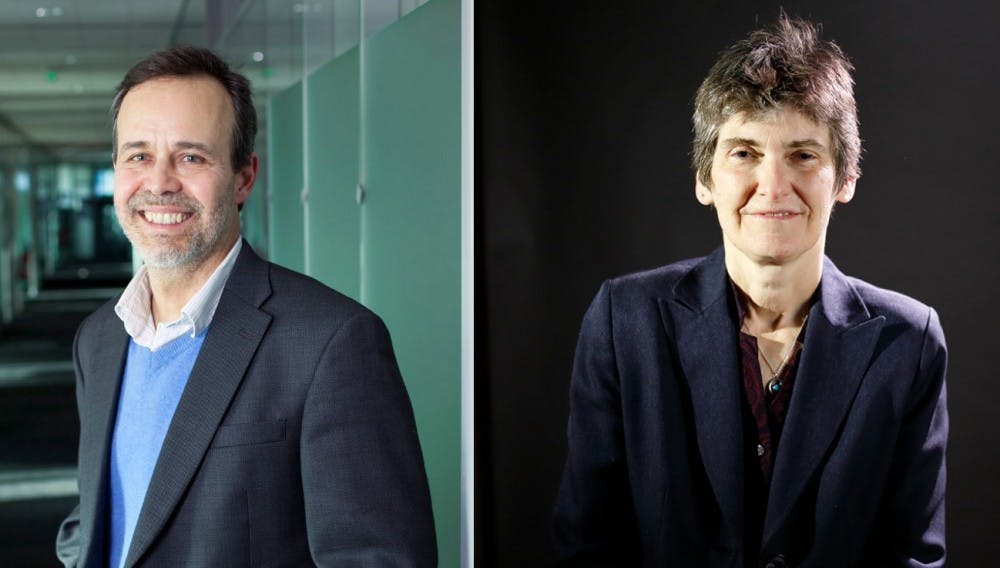Two IU professors, Janet McCabe and Eduardo Brondizio, testified before United States congressional subcommittees May 21 and 22 about environmental concerns.
The testimonies were unrelated even though they happened a few days apart. The professors discussed different topics in front of different subcommittees.
Both professors are affiliated with the Environmental Resilience Institute, which was founded in 2017 as part of IU's Prepared for Environmental Change Grand Challenge Initiative. The institute conducts research and creates strategies to reduce the impact of environmental change.
McCabe, a professor at IU-Purdue University Indianapolis McKinney School of Law, testified before the U.S. House Energy and Commerce Oversight and Investigations Subcommittee about her opposition to proposed changes to the way the U.S. Environmental Protection Agency measures health impacts.
Brondizio, a professor in the department of anthropology, testified before the U.S. House of Representatives Committee on Natural Resources' Subcommittee on Water, Oceans and Wildlife about a large study on extinction he was a part of.
McCabe was chosen to testify because the EPA is trying to change how it measures health effects of its regulations. This would reverse the decision the department made in 2011 to pass the Mercury and Air Toxics Standards.
McCabe was the acting assistant administrator for Office of Air and Radiation in former President Barack Obama's administration and led and implemented Clean Air Act standards, which MATS is under.
MATS establishes limits for the amount of pollutants such as mercury from coal or oil-fired power plants.
The EPA took comment on this decision, and this committee brought together experts on various subjects regarding the proposal.
McCabe said the proposal will cause damage if approved, such as reversing MATS and affecting the way the EPA makes future decisions.
McCabe said there were two reasons why the EPA is attempting to change these assessments: to help bolster the coal industry and to influence the way the agency makes decisions.
“Anything that affects the coal industry is something they want to look at eliminating,” McCabe said.
The agency wants to use a different measurement to calculate health effects in a way that will minimize the consideration of these effects when weighing decisions.
“When you’re weighing costs and impacts, if the costs are the same and the impacts are less, you might make a different decision about the outcome of the rule,” McCabe said.
Brondizio is the co-chair of a sweeping global assessment on environmental effects on biodiversity called the Global Assessment on Biodiversity and Ecosystem Services. It was completed by the United Nations' Intergovernmental Science-Policy Platform on Biodiversity and Ecosystem Services.
The report detailed the amount of species throughout the world that are going extinct due to human activity and how the experience of extinction varies in different parts of the world. One in eight species are threatened with extinction, said Jared Huffman, chairman of the Water, Oceans and Wildlife Subcommittee.
"The Global Assessment on Biodiversity and Ecosystem Services is the most comprehensive synthesis ever done on the scale of human impact on nature during the last 50 years, societal responses and possible future trajectories," Brondizio said in an IU press release.
He testified about the report with a team of scientists from around the world May 22, International Day for Biological Diversity. They identified which species and ecosystems are at risk, which is causing the issue of mass extinction. They outlined what can be done by the committee to solve it, such as taking steps to promote more sustainable uses of resources and effective mitigation of climate change.
“Societal impacts on land, freshwater and oceans have accelerated significantly during the past 50 years, which are increasingly interacting and having compounding and cascading effects on biodiversity, ecosystems and society at all levels,” Brondizio said.
Both testimonies were live-streamed and are available to view at the House Energy and Commerce website and House Committee on Natural Resources: Democrats Facebook page.




